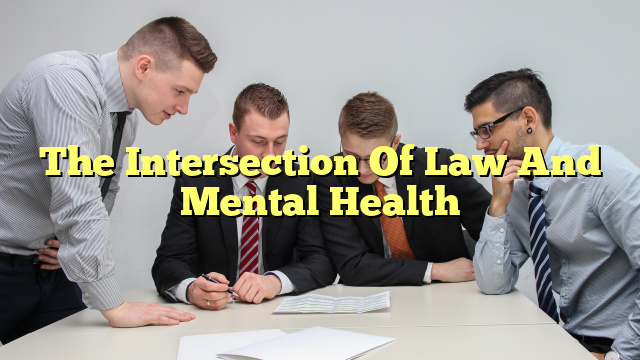Table of Contents
- How do crime and mental illness intersect?
- What is an example of intersectionality in mental health?
- What is mental health and law a system in transition?
- What is the connection between mental health and the criminal justice system?
Introduction
The relationship between law and mental health is complex and ever-changing. Mental health issues can lead to criminal behavior, and criminal behavior can lead to mental health issues. However, despite the fact that the two are often intertwined, the legal system does not always take mental health into account when dealing with individuals who have committed crimes. Additionally, the mental health system can be inadequate in dealing with individuals who present themselves in the criminal justice system.
How do crime and mental illness intersect?
Mental illness and crime are closely related, with many studies finding that those with mental illness are more likely to be involved in criminal activity. Additionally, individuals with mental illness are more likely to be victims of crime than those without mental illness. According to the National Institute of Mental Health, approximately one in five adults in the United States have a mental illness. In addition, more than half of all individuals in the criminal justice system have a diagnosable mental illness, with around 10% having a serious mental illness.
It is important to note that mental illness does not necessarily cause criminal behavior. However, when mental illness is not properly treated, it can lead to increased levels of criminal activity. This could be due to the fact that those with mental illness are more likely to be socially isolated and therefore more vulnerable to becoming involved in criminal behavior. Additionally, those with mental illness may have difficulty controlling their behavior, which can lead to criminal activity.
What is an example of intersectionality in mental health?
Intersectionality is the idea that multiple factors—such as gender, race, class, and disability—intersect to create unique experiences and identities. In terms of mental health and law, intersectionality can play a role in how individuals with mental illness are perceived and treated by the legal system. For example, individuals who are members of marginalized groups may be more likely to be criminalized due to racism, sexism, ableism, and other forms of oppression.
Additionally, access to mental health services can vary based on one’s social location. Those with financial means may be able to access more resources than those without, and those with privilege may be more likely to receive leniency from the legal system. Therefore, it is important to recognize how intersectionality can play a role in how individuals with mental illness are treated in the legal system.
What is mental health and law a system in transition?
Mental health and law is a system in transition. Over the past few decades, there has been an increased recognition that mental illness can be a factor in criminal activity, and that mental illness should be taken into account when dealing with those individuals who have committed crimes. However, there is still a long way to go in terms of how mental illness is treated in the legal system.
In recent years, there has been an increase in the use of diversion programs, which attempt to divert individuals away from the criminal justice system and into the mental health system. Additionally, there has been an increase in the availability of mental health services in the criminal justice system, such as specialized mental health courts. However, there is still room for improvement in terms of how mental illness is treated in the legal system.
What is the connection between mental health and the criminal justice system?
The connection between mental health and the criminal justice system is complex and ever-changing. On one hand, mental illness can lead to criminal behavior, and on the other, criminal activity can lead to mental health issues. Additionally, individuals with mental illness can be more likely to be victims of crime than those without mental illness.
In order to address this connection, there needs to be an increased recognition of mental illness in the legal system, as well as an increase

